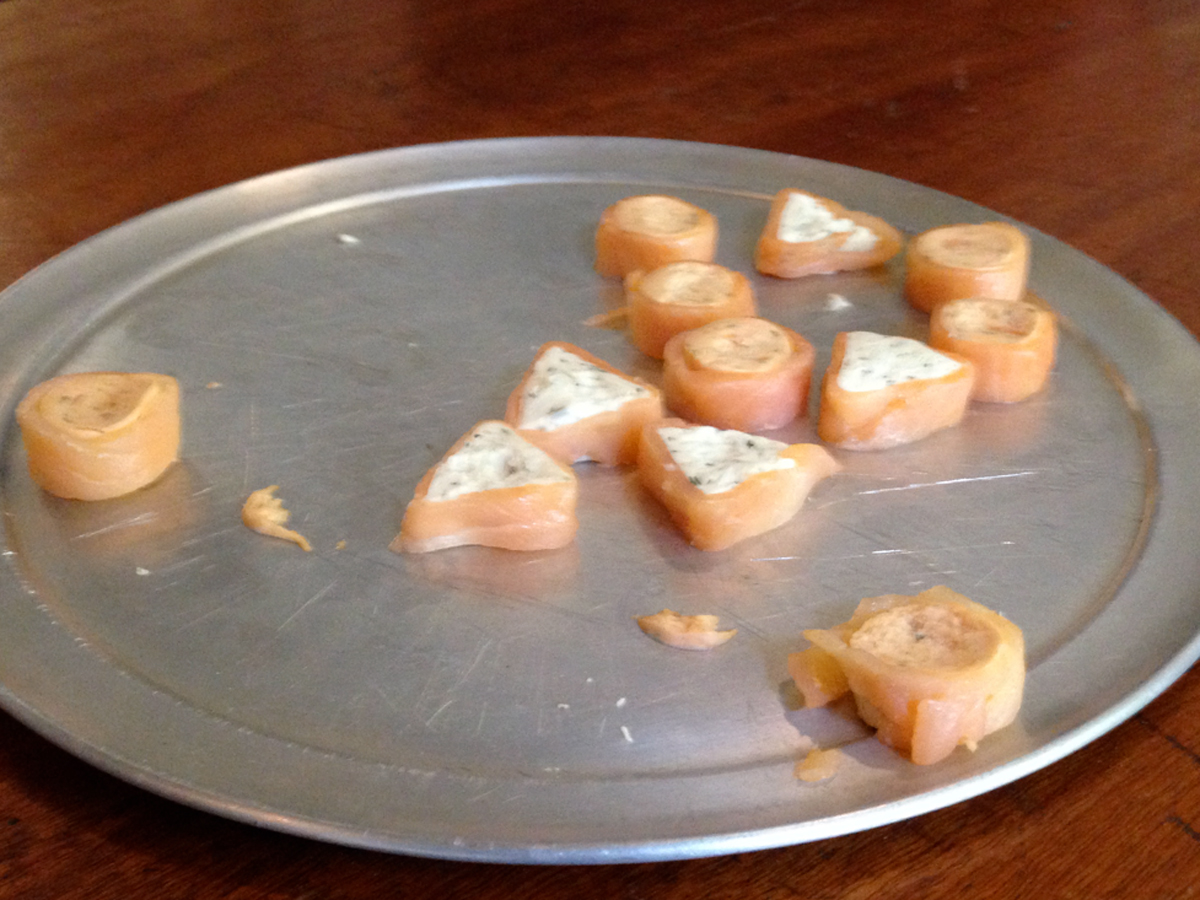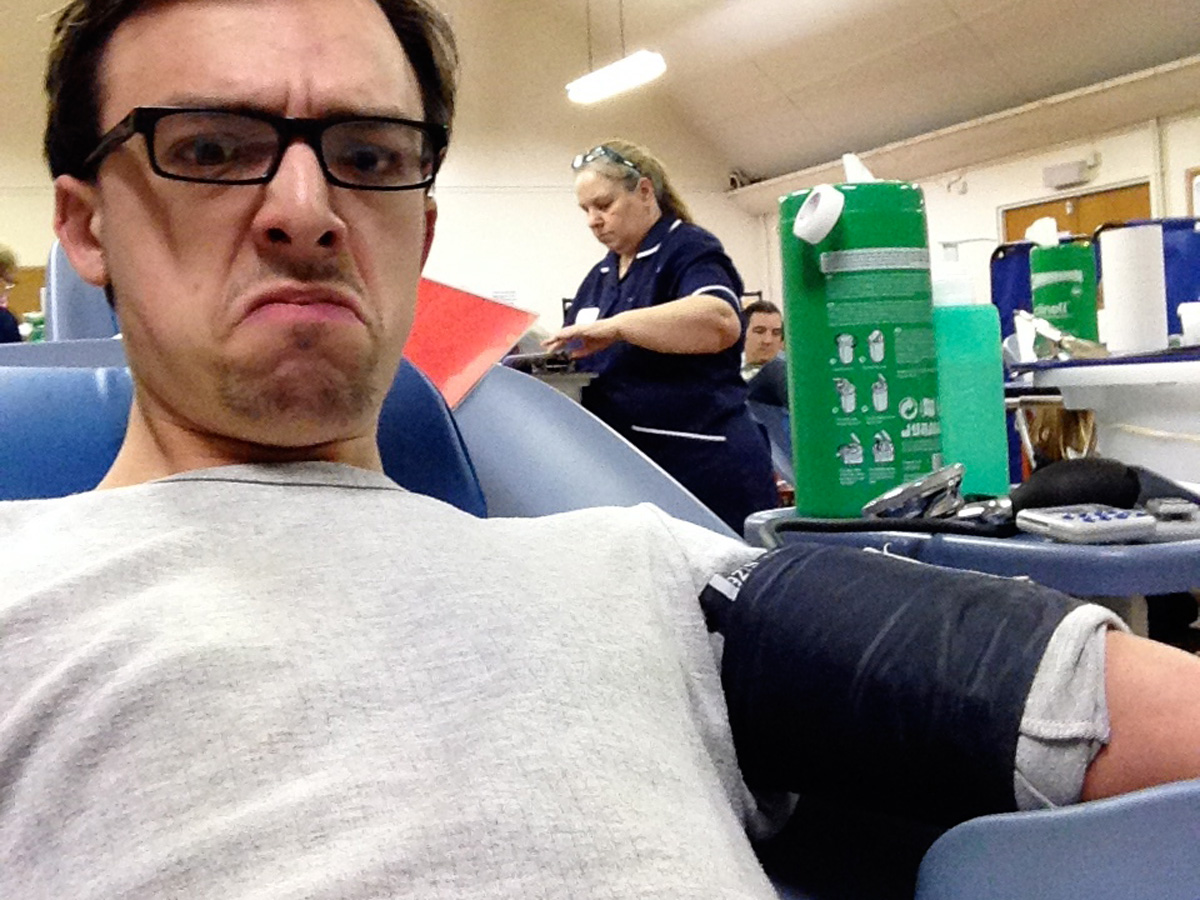Waste Not, Want Not: Dipping In The Skipchen
Jacob Dyer heads to Stokes Croft’s Skipchen to find out how one small kitchen is saving more food than most supermarkets and doing something delicious with it.
‘…lakes of butter, wine rivers and mountains of bread…’
When I was in secondary school, my geography teacher told us the horrific truth about food waste. She told us that the abundance of food in Europe had got to a point where we were sitting on, ‘lakes of butter, wine rivers and mountains of bread’. That imagery has never left me, and as I went to meet Sam Joseph, the co-director of a project named, ‘Skipchen’ in Stokes Croft, the lurid thought returned to my mind.
The idea behind Skipchen is simple: find food that would normally be thrown away and wasted by supermarkets and businesses and recycle it to create delicious meals to serve to the public. It’s an admirable goal, and in this world where wastage is second nature, the people at Skipchen are perpetuating a noble ideology.
…find food that would normally be thrown away and wasted by supermarkets and businesses and recycle it to create delicious meals to serve to the public.
As soon as I ventured through the doors, I was hit by the smell of caramelised onions. Hot dogs were at the top of the menu, and behind a chrome countertop, three volunteers of various ages worked hard to make food for their beloved patrons. I sat at the back of the restaurant, not wishing to get in the way of anyone waiting in line.
As I took my place, I caught the attention of a customer who’d already ordered his lunch. He was busy tucking into a plate of spicy cauliflower fritters and scampi. Even though I’m not a fan of either food, the presentation of the meal was phenomenal. ‘I’m Sumny,’ he said, and then put a piece of fish into his mouth. I asked him what brought him here and what brings him back. ‘It’s the cost of living,’ he shook his head, ‘we’re like, what? The sixth most expensive country to live in. This place is cheap, and it’s good. Sometimes I get a takeaway or something, but when you come here you’re helping, you know? You got all these negative establishments just wasting their food, and when you eat here, you’re challenging that. You’re eating great food and reducing waste. It’s a sweet deal.’
‘…You’re eating great food and reducing waste. It’s a sweet deal.’
I left Sumny to his meal and observed the other people who’d chosen to eat at the Skipchen. One thing was abundantly clear: there was no clear age group or specific type of person who walked through the doors. Students rubbed shoulders with elderly people, and businessmen ate with the unemployed. I heard banter between customers and playful quips that brought rapturous laughter. The Crofters Rights was, just recently, converted from a music venue to a public house and memories of sweaty, deafening gigs started to play in my mind. Where the kitchen stands now, I had once seen a man almost devour a microphone as he yelled lyrics at the top of his lungs.
A woman with bright eyes stood in my eye line and pulled me from my daydream. ‘Sam can’t make it, I’m afraid. I’m the other co-director, Katie. I can talk to you today, if that’s all right?’ Fine by me, I thought. I started off with an easy question; how much food does the Skipchen pull in every week? ‘Tonnes,’ was the response. ‘We’ve had donations from wholesalers and their warehouses obviously hold a lot of food, so some of that comes here. We get crates of vegetables, countless loaves of bread.’ And, I wondered, how much of that is left behind? ‘We’ve only ever turned down food once, and that was when we tried to accommodate a huge chunk of mozzarella.’
‘We’ve only ever turned down food once, and that was when we tried to accommodate a huge chunk of mozzarella.’
Bread and packaged vegetables are the most frequently wasted food, says Katie. ‘We get a lot of loaves. We had 80 kilos of bread at one point. The main problem is best before dates; they’re entirely arbitrary and down to the opinion of one person. It’s up to some guy, somewhere, to look at the food and claim how long it’ll last. We have a saying here, “reclaim your senses”. Use your nose, your eyes, your fingers, your tongue to see if the food is out of date. Don’t rely on a date someone made up. Decide for yourself.’
‘We once had teff milk turn up in our stocks,’ Katie tells me. ‘It was donated by an organic wholesaler who got it from Ethiopia. It was pretty good! No gluten or lactose. We used it in our sauces. We also had a bunch of jams from Swaziland with little wooden spoons attached. That was quite sweet. It’s interesting to think how far food travels.’
‘…We don’t need anarchy or rebellion to stop wastage, we just need to take responsibility.’
The Skipchen was obviously doing well in Stokes Croft, but would the idea fail in other parts of the country? ‘We have a place in Leeds. That was the first, actually,’ Katie says with a smile, ‘but Bristol has a green attitude about it, so we’re doing well here. I’m sure opening a Skipchen might be a challenge in some areas, but the idea we’re pushing will always be well received. We don’t need anarchy or rebellion to stop wastage, we just need to take responsibility.’
I asked Katie if she knew about the newly-opened Bon Appetite situated just down the road, boasting a menu where everything is just 99p. ‘We’re not competing with them. We’re not just a restaurant, we’re a physical space where people can eat and make friends. There’s a community here. A bond between the people. You might price your food at under a pound, but we’re campaigning to show the real value of food, not bring it down. We operate under a pay-as-you-feel policy, so even if you can’t afford anything more than 99p, you’ll find a much safer space here.’
Is the future of the Skipchen aligned with changing the minds of the youth?
George Ferguson, the current Mayor of Bristol, has shown his favour for green ways, but Katie hasn’t seen him in the Skipchen. ‘No, George hasn’t poked his head in, but he did tweet at us once. The Green Party do support us, though, and we’re helping Natalie Bennett with our mobile kitchen’. Is the future of the Skipchen aligned with changing the minds of the youth? Katie thinks so. ‘It’s a dream right now, but we’d love to own part of an allotment and grow some food. We’d love to visit schools, open up a training kitchen…’ She tails off for a second. Her eyes glaze over as she’s lost in the unwritten future of tomorrow. ‘We’d love to show people the story of food,’ she adds.
With pictures taken and hands shook, I left the Skipchen with my mind full of optimism. With more and more people lining up to sample the delicious delights prepared by the volunteers, the idea of responsibility for our food surely grows with it.
But, my idealistic daydreams weren’t destined to last long. I caught sight of one of the hot dogs prepared earlier laying on the pavement just outside the Skipchen itself. It was spread across the paving slabs, coating the concrete in onions and ketchup. The culture of waste, it seems, is so hardwired into some people that they’d go so far as to ignore the very place they got their food from.
Have you been to Skipchen? How do you feel about the amount of wastage from supermarkets? Let us know: @rifemag












